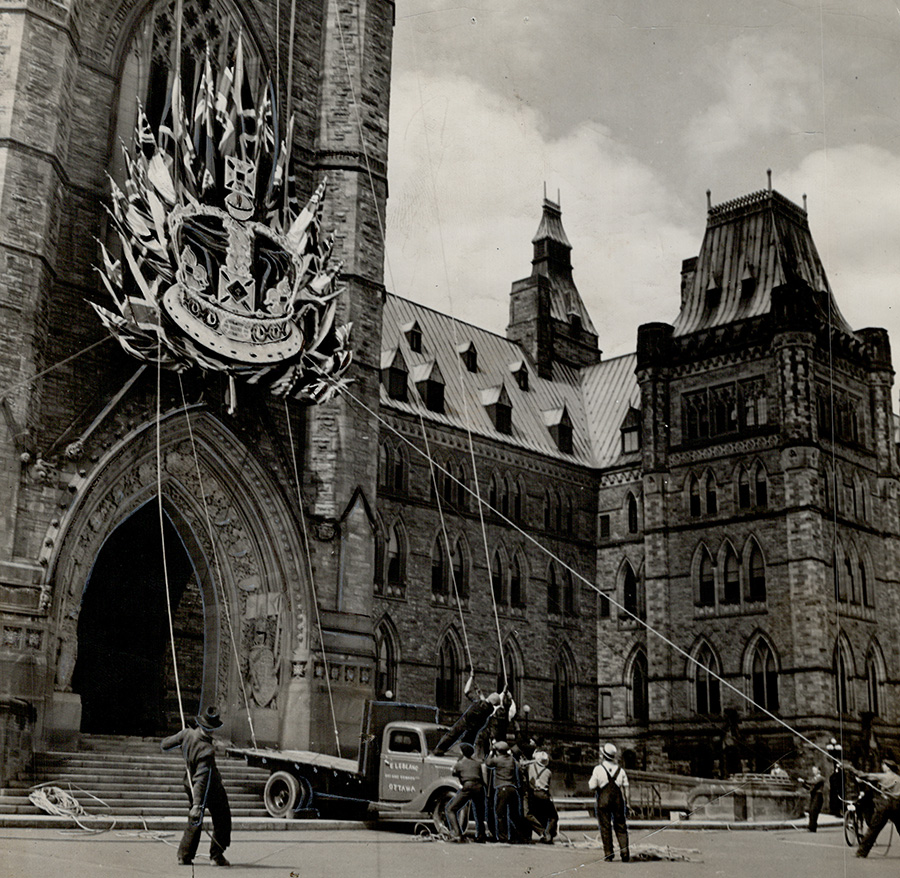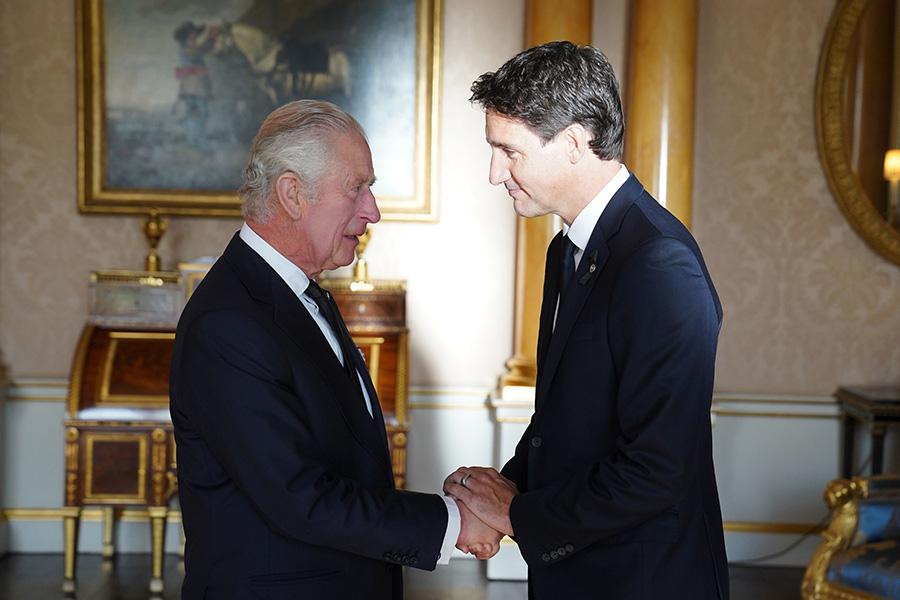New Canadian Poll Bad News for Royal Family — Should Canada Retain a British Monarch or Become a Republic?

Then-Prince Charles and Camilla Parker-Bowles visiting Canada in 2017. As a new monarch is crowned in Britain, is it time for Canada to have a head of state who is Canadian? Photo: Adrian Wyld/The Canadian Press
With the May 6 coronation of King Charles less than two weeks away — an event that for many Canadians will be the first coronation of their lifetime, the last being the crowning of Queen Elizabeth back in 1953 — a new poll from the Angus Reid Institute suggests the majority of Canadians (60 per cent) oppose recognizing Charles as King. In fact, only 28 per cent say they have a favourable view of Charles, while nearly half (48 per cent) do not.
And the bad news for the Royal Family doesn’t end there, with two-thirds of survey respondents saying they are opposed to recognizing Charles’ wife, Camilla, as Queen of Canada. As to this country’s ties to the monarchy, only 33 per cent said that Canada should remain a constitutional monarchy for generations to come.
In light of these new poll numbers, we revisit a recent story examining why it’s time to have a proper debate in this country about the monarchy.
On May 6, 2023, Charles III will officially be crowned King of the United Kingdom in a coronation ceremony at Westminster Abbey.
As King, Charles is also the head of state of 14 other Commonwealth countries, including Canada. The coronation raises an important question for Canada and the other countries: should we retain a British monarch as our official head of state?
Several Commonwealth countries have already removed the British monarch as their head of state, opting to become republics. Others are considering making a similar change.
In 2021, Barbados became the latest Commonwealth country to cut ties with the British Royal Family, opting to make Sandra Mason, the country’s governor-general, its first president.
Australia recently announced that King Charles will not be appearing on their $5 banknote. This may prove the opening gambit in what could lead to a second Australian referendum on whether to become a republic. Australia’s current Labor government has announced its intention to hold such a referendum if it is re-elected to a second term.
Canada and the Crown
Canadians of a certain age will remember the heated debate back in 1965 when the Pearson government moved to replace the Red Ensign, with its Union Jack in the corner, with the Maple Leaf flag.
John Diefenbaker and other Tories huffed and puffed about the terrible break with tradition this would represent. But who in Canada today would want to return to the Red Ensign?
The Crown has had an important place in Canadian history. It was a symbol of the British connection and of the country’s tie to the British Empire at the time of Confederation and for many decades thereafter.
It is also worth noting that, demographically speaking, a clear majority of the country’s English-speaking population was of British origin for much of the country’s history.
But this has been much less the case since the Second World War. Immigrants from around the world have made Canada a much more diverse country. Nor do those Canadians with British ancestry necessarily identify with Great Britain as the mother country in the way previous generations might have done.

A Borrowed Crown
Constitutional monarchy is a perfectly legitimate option for liberal democracies. It has worked well in Scandinavia and the Benelux countries, and reasonably well in the U.K., Spain and Japan.
The problem for countries like Canada or Australia is that ours is a borrowed crown. The Royal Family is British and no attempt to Canadianize the Crown can disguise the fact that our head of state is not and cannot be a Canadian, as long as this last vestige of the colonial tie is retained.
We need to have a proper debate in this country about the monarchy, now that the Queen who reigned for seventy years has passed away. The House of Windsor has had its share of problems, and the current royals do not enjoy the same level of popularity that Queen Elizabeth may have had. Nor is it clear why the Canada of today would want to retain its ties with an institution steeped in aristocratic and feudal privilege.
It would be helpful if our political parties, beginning with the New Democratic Party and the Liberal Party, were prepared to open a debate on the subject. But it needs to go well beyond their ranks and include society at large. What is at stake is the symbolism associated with having a British monarch as our head of state a century and a half after confederation.
Some might argue that replacing King Charles would open up a constitutional can of worms. A key question is how a future Canadian head of state might be designated. Clearly, we would not be replacing a parliamentary system with a presidential system of the American or French variety.
If we were to become a republic, it’s important to agree on a mechanism by which a president might be chosen. This was a problem that dogged the republicans in Australia at the time of their 1999 referendum.

A Possible Path Forward
One model that comes to mind for a federal state like Canada is Germany. Their president is elected to a five-year term (renewable once) by a Federal Convention made up of all the members of the Bundestag (the lower house of parliament), and an equal number, proportionate to their respective populations, elected by the legislatures of the 16 Länder (provinces).
The system has functioned well until now, with the figures who have occupied the presidency being well-suited to the role. Germany, like Canada, remains a parliamentary democracy. Effective political power rests with the chancellor, as it does with the prime minister in this country.
Were Canada to go the republican route, we would need to do so through a long constitutional process. The Canadian constitution states that there must be unanimity of the provinces for changing the head of state. In addition, treaties between First Nations and the Crown would have to be carried forward into a Canadian republic.
However, where there is a will there is a way. And Canadians should no longer shirk the question: does the British monarchy reflect how we see ourselves in the 21st century?![]()
Philip Resnick, Professor Emeritus, Political Science, University of British Columbia
This article is republished from The Conversation under a Creative Commons license.
RELATED:
Britain’s Historic Coronation Throne Gets Revamp Ahead of King Charles’ Crowning
The Historic St. Edward’s Crown to Be Modified for King Charles’s Coronation